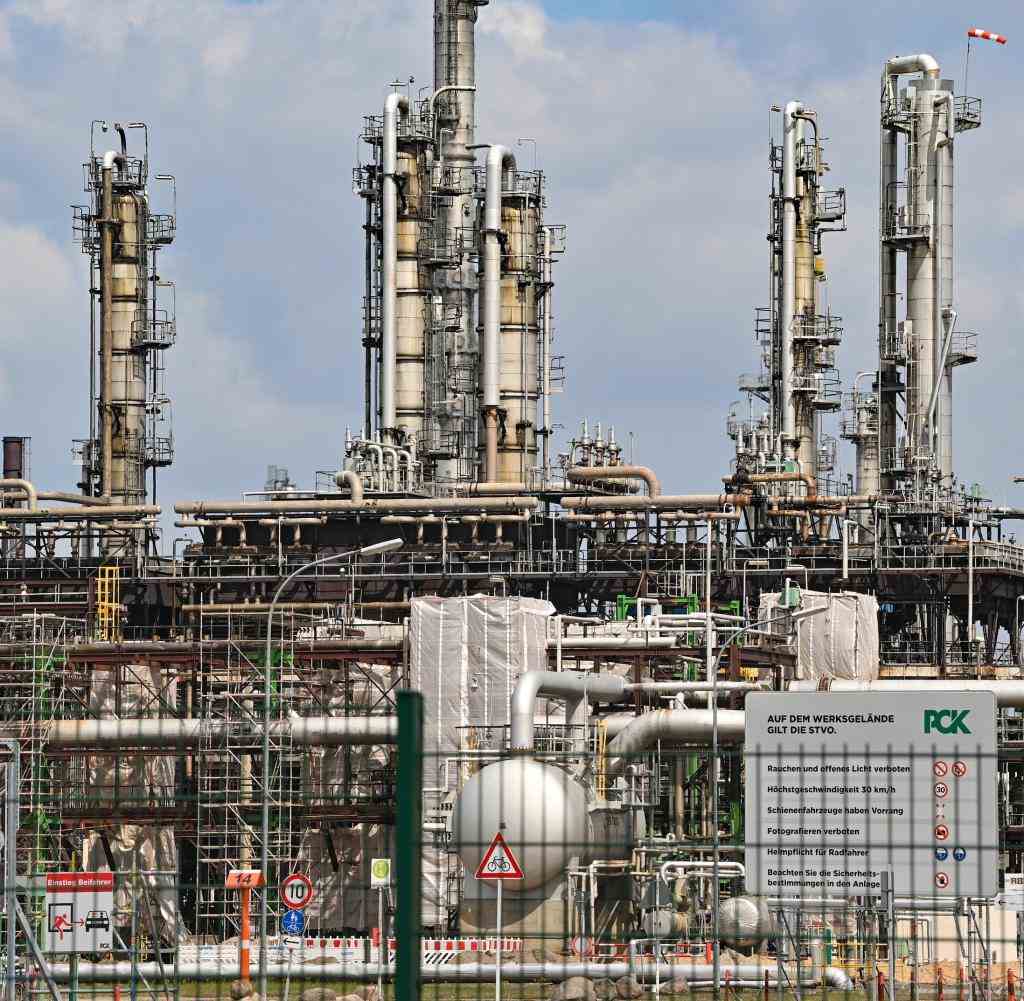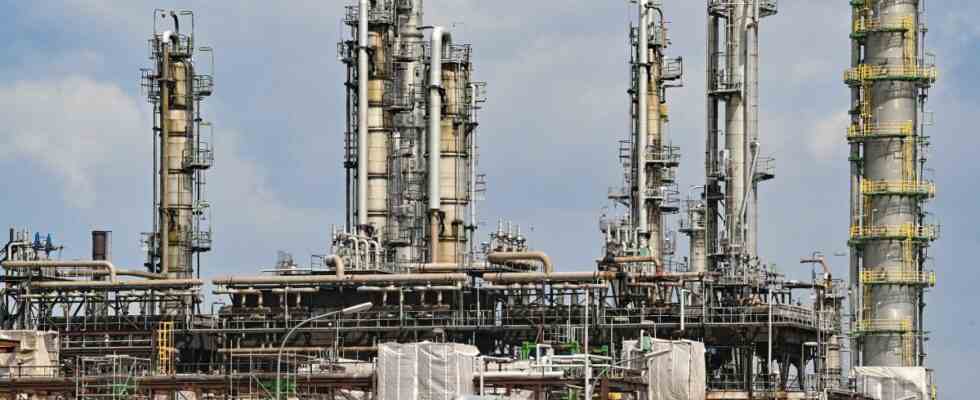Ministry of Economic Affairs warns of supply bottlenecks in crude oil

New trading partners are being sought for the PCK refinery in Schwedt in north-eastern Brandenburg
Source: dpa/Patrick Pleul
In two weeks, the import ban on Russian crude oil will come into force. Berlin therefore warns of price jumps and possible supply problems. The Ministry of Economic Affairs considers the changeover to be “challenging but manageable”.
Dhe federal government cannot rule out temporary supply bottlenecks and price increases when the import ban on Russian crude oil comes into force in just over two weeks.
The situation could be comparable to this summer, when the low water level of the Rhine hampered the transport of raw materials and other goods, the economy ministry wrote in a response to a question from the CDU/CSU parliamentary group.
The embargo by Germany and other European countries on Russian pipeline crude comes into effect on December 5. Sanctions against crude oil deliveries by sea had already been decided because of the Russian attack on Ukraine.
For the refineries PCK Schwedt and TRM Leuna, which are fed by the Druzhba pipeline, the switch to other sources of supply would be “demanding in terms of the quantities to be substituted, but manageable,” according to the ministry. For example, transport costs would increase. Benchmark Brent is currently trading an average of $20 a barrel above Russia’s Ural crude.
Looking for new suppliers for refinery
The federal government has urged both refineries to maximize their reserves. It is also in talks with Warsaw to find a long-term solution for the PCK refinery in Schwedt, which has already been suffering from the drop in Russian oil supplies since Berlin took over the German subsidiary of Russian oil company Rosneft in September.
According to the information, several companies have shown an interest in investing in the refinery in Schwedt. This supplies Berlin and large parts of East Germany with fuel.


